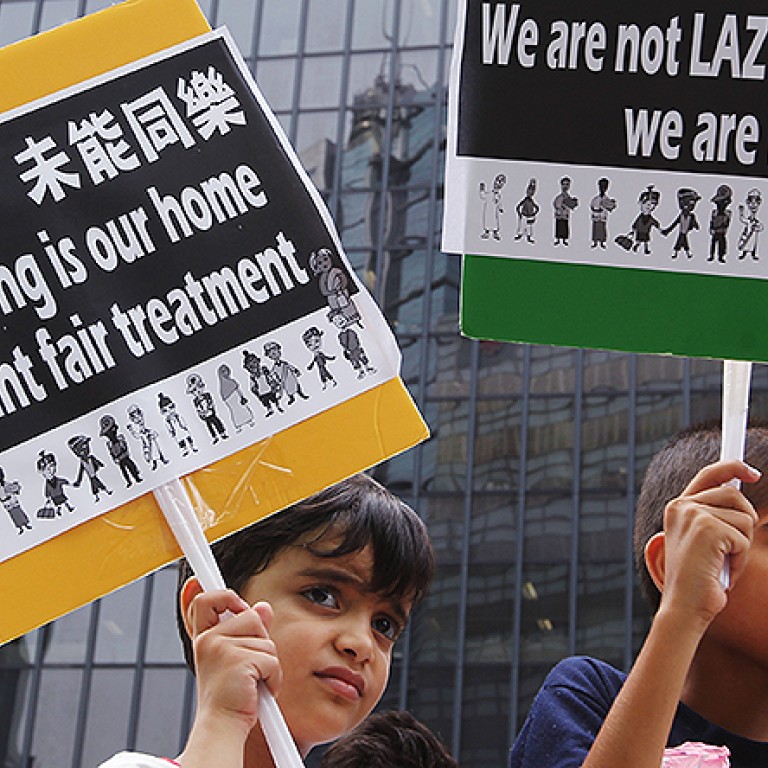
Hong Kong's ethnic minority students deserve a fair chance in life
Bernard Chan urges change to de facto segregation in Hong Kong schools
Few are happy with education in Hong Kong. Local parents complain about mainlanders competing for places in kindergartens, while expatriates worry about rising fees in international schools. But a third group of children have it worse: ethnic minorities.
For many in Hong Kong, ethnic minority kids are off the radar. This lack of interest does not reflect well on our attitudes towards wealth, social status and skin colour. But this is an issue of social fairness as well as one of economic common sense.
Who are Hong Kong's "ethnic minority" students? Essentially, they are the 2-3 per cent of children whose native language is not Chinese and who rely on free, public-sector schooling. The term does not include, say, mixed children who are fluent in Chinese, as they can handle the Chinese curriculum in local schools. Nor does it include most white or Japanese children, whose parents can manage fees for international schools.
In practice, the term usually means children of South or Southeast Asian origin - especially those from poorer families. They are not brought up as native Chinese speakers, so they are behind native-speaking kids in this core subject right from kindergarten.
Literacy in Chinese requires intensive learning of thousands of characters, right into teenage years. With no real chance of keeping up with native speakers from the very start, many ethnic minority students just fall further behind. By the time they reach Form Five, many have achieved only Primary Three level in written Chinese.
Most can forget about entering local university, or qualifying for many decent-paying careers. Many boys end up doing manual work, and the girls take jobs like waitressing.
But, you may ask, can't they speak good English? And don't many Westerners get good jobs here without reading and writing Chinese? Some ethnic minority school-leavers do have excellent English, but not all. And high-earning jobs not requiring Chinese literacy tend to be very specialised and often require college-level education.
The government's response has been to fund extra Chinese-language support for ethnic minority students and their teachers in particular schools. Ethnic minority students have clustered in these schools, and the result is a sort of segregation. In many cases, this is by choice. Many minority students and parents seem comfortable with this arrangement, and native-speaking kids don't have to worry about being held back by minorities needing extra help.
However, this situation is harmful on several levels. For ethnic minority students, it lowers their Chinese standards, as they are not immersed in a Chinese-language environment. For society as a whole, it reinforces barriers and increases our ignorance of one another, and it is a waste of human potential.
Education specialists and supporters of ethnic minorities are calling for a radical change in policy. In particular, they want the government to develop and implement an intensive Chinese-as-a-second-language curriculum for ethnic minorities, especially in the all-important early childhood years. The aim would be to enable ethnic minorities to enjoy the same level of opportunities in life as native-speaking students.
Meanwhile, the Equal Opportunities Commission is looking into the segregation of our schools, and asking if it should take legal action to end it. This debate could become quite bitter. There are claims that officials are uncaring, even guilty of racial discrimination; there are other claims that minority families lack motivation.
For many stakeholders, the status quo does seem to be a sort of comfort zone. But that cannot be an excuse. If the current system is seriously holding young people back, it needs to be changed for the good of the whole community.

